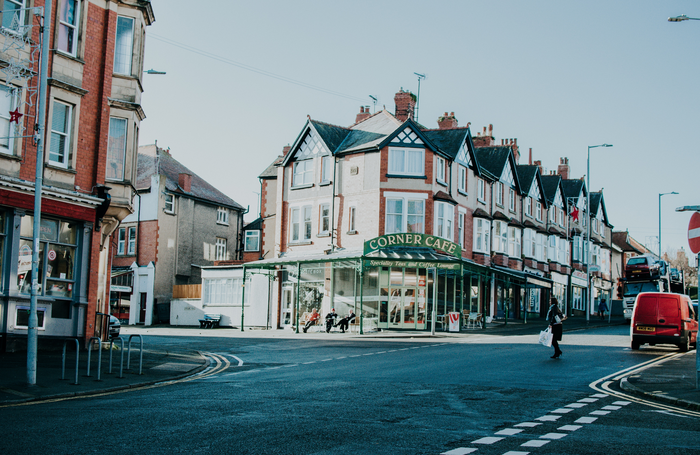The coronavirus pandemic looks set to redraw the landscape of high streets and retail across the country. This will likely impact local communities and local businesses, forcing many town centres to evolve their offer.
In this blog post, part of a series published for the Future Place programme, Melanie Leach – Chief Executive at British Property Federation – discusses how the property sector has helped build value and resilience at a challenging moment for communities and local businesses.
She also looks ahead to what comes next for town centres and how we can take this opportunity to build thriving, integrated communities.
Redefining real estate
The built environment has always played a fundamental role in both the UK economy and society. But as the coronavirus pandemic continues to unfold and impact every aspect of our lives, the role played by the built environment in supporting business and people across the country has arguably never been so vital.
Concierges, wardens, and security staff – and those who have been carrying out essential health and safety functions since the first national lockdown – are among those making sure that our tenants in residential and commercial buildings are protected and supported. They are also ensuring that buildings that have been progressively emptied in part or whole remain safe and fit to return to.
I commend them all as exemplars of our industry’s values and commitment to our customers. The British Property Federation has been working hard both to make sure that the government understands the importance of what they do and that they are protected in carrying out their work.
Adding social and economic value
Property businesses of all shapes and sizes, from investors and developers to architects and planners, have been adapting and innovating, preventing the property sector – and the social and economic value we provide to customers and communities – from grinding to a halt.
Whether it’s finding new ways to engage with customers and stakeholders online, increasing outdoor eating capacity or making sure that our facilities support local health services and communities, we are playing a key role throughout this pandemic in maintaining economic and social resilience.
Our actions as an industry today will define us for the future. Last year, the BPF launched its campaign Redefining Real Estate, committing the BPF and its members to make a greater contribution to the UK‘s communities and to improve trust in what we do in partnership with national and local governments.
The past several months have provided us with the opportunity to demonstrate that we are serious about redefining real estate – but we are only at the beginning of this journey to deliver more value for business and people and improve recognition of the part we will play in creating a more positive future for the UK.
To succeed, we must continue to step up, unite and demonstrate meaningful commitment to support our customers and the communities we are invested in through these unprecedented times.

High streets at the sharp end
The Chancellor’s Spending Review on 25 November was a stark reminder of the economic impact of COVID-19 and the long road ahead to recovery. High streets continue to be at the sharp end of the pandemic with retail, leisure and hospitality businesses again ordered to close in November. Our members have been proactive in offering dialogue and support to any tenant who, through no fault of their own but due to coronavirus, is in temporary financial distress.
To illustrate what this support has looked like in practice, Argent waived rent for three months for every tenant at their King’s Cross development, and Grosvenor extended the government’s Eat Out To Help Out scheme for its tenants.
Our town and city centres, and in particular the retail sector with the growth of e-commerce and changing consumer behaviours, were already undergoing significant structural and cyclical change before coronavirus – and the pandemic has accelerated this cultural shift.
Our urban centres will no doubt have smaller retail footprints moving forward, but they will retain their position at the centre of our communities. They will evolve. They will include a much wider mix of activities, more residential spaces for a wider range of demographics and more community services.
A more resilient future
Delivering not only revitalised town centres but thriving integrated communities across the country will require investment at scale. The government’s Spending Review set out a number of encouraging steps in the right direction, with the publication of the new National Infrastructure Strategy, a new £4bn Levelling Up Fund and a £10bn National Home Building Fund.
Public-private sector partnerships will sit at the heart of recovery, particularly as pressure mounts to get shovels in the ground to build the places and infrastructure that will be fundamental to the Prime Minister’s levelling up agenda. Less eye-catching than the big financial commitments in the Spending Review is the outcome of the Treasury Green Book Review, which sets out changes to how the government appraises and evaluates spending decisions. This should mean the private sector is able to partner more effectively with public investment to deliver wider economic, social and environmental benefits in an inclusive way across the country.
This partnership – where both sides understand and accommodate the other side’s priorities and work towards a shared vision – will be fundamental to underpin success.

Building back better
The government’s ambition is to build back better. I think that’s entirely consistent with the British Property Federation’s own campaign to redefine real estate and something we are wholly committed to.
Our campaign has four themes – supporting local economies to thrive, building skills and talent, strengthening local communities and ensuring a more sustainable built environment. While some of our habits – how we work, shop and the way we want to live – may be changing, and the long-term impact of those changes may not be apparent for some time, it is clear that COVID-19 has forced us to think about our values whether as businesses, communities or individuals.
Now is the time for real estate to be clear about its values in response – a more sustainable built environment which is responsive to customers who want good quality, well-connected, healthy places in which to live, work and relax. We need to redefine real estate to rise to this challenge.
About the author
Melanie Leech is Chief Executive at the British Property Federation. Her role is to champion UK real estate and to promote a sustainable partnership between governments and the sector to deliver a high quality built environment.









